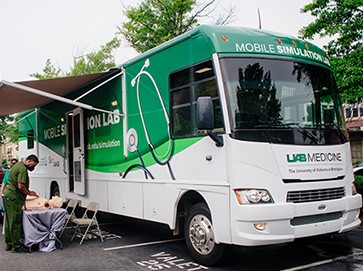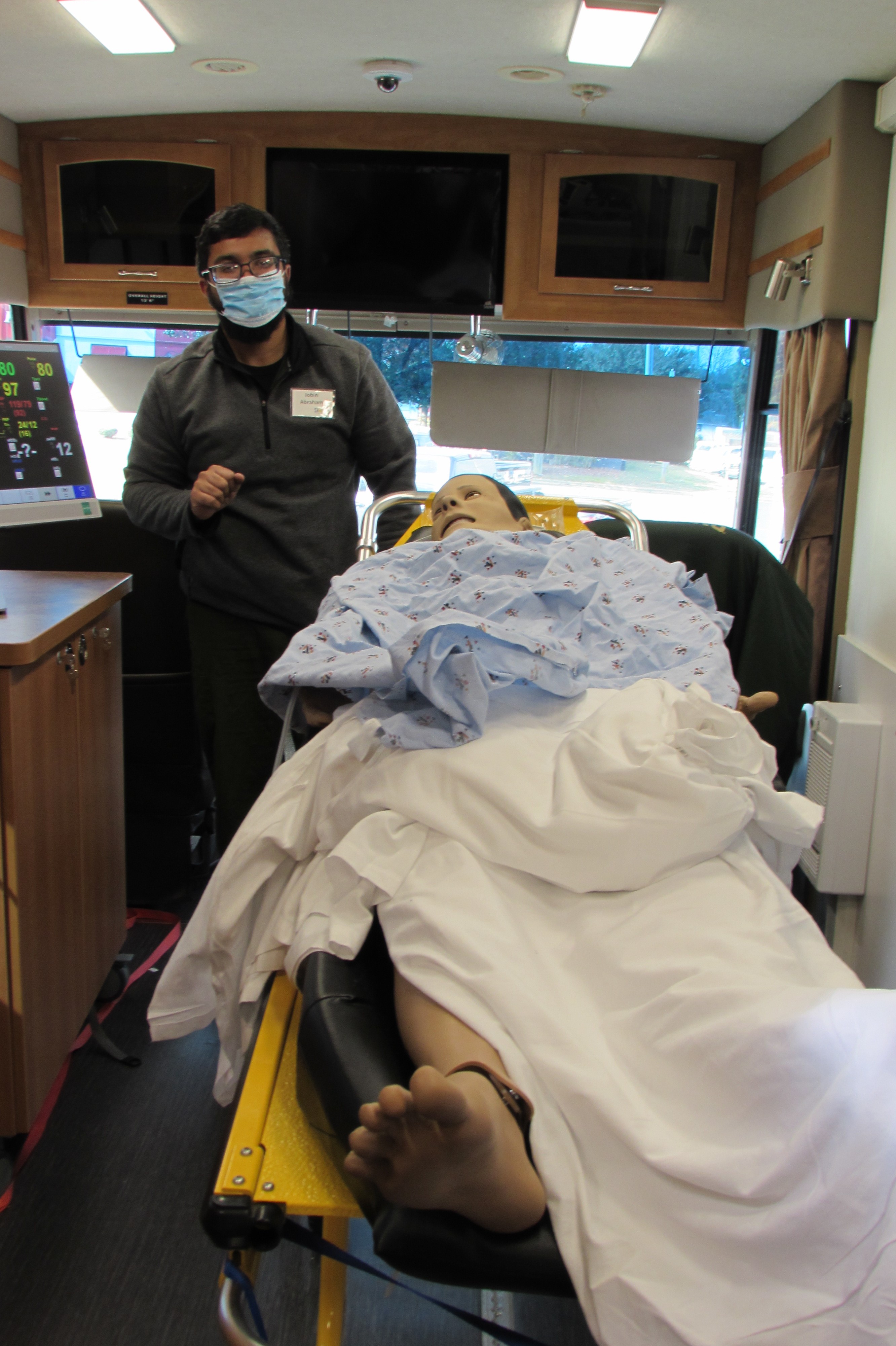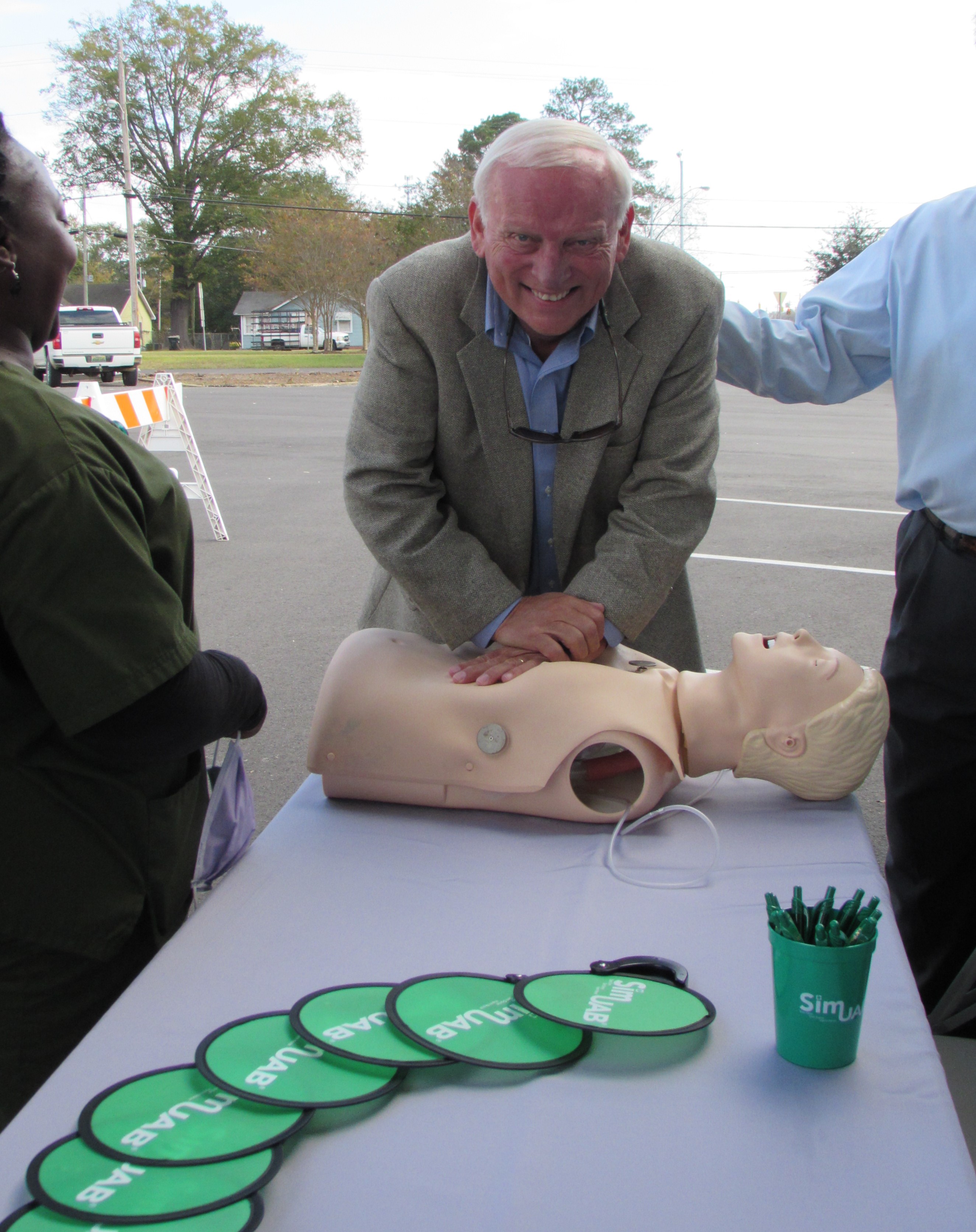Simulation training tool introduced to WRH staff
Being a part of the UAB Heath System brings another advantage to Whitfield Regional Hospital, one that was shown off Tuesday to hospital employees and the community.

What looked like a 38-foot recreational vehicle parked in front of the hospital holds a sophisticated medical training unit. The Alabama Rural Health Collaborative and SimUAB® Mobile Simulation Lab, the only such unit in the state, brings advanced simulation training directly to health care professionals around the state.
The training and teaching tool so far is available only to the nine hospitals and medical facilities affiliated with the UAB Heath System, and WRH became the first in the collaborative to get an introduction.
Groups of hospital workers toured the unit to get an idea of how the training offered by the lab can improve the care patients receive at WRH. On hand to explain the wide range of simulations available were members of the simulation staff who demonstrated some of the tools.

By far the item that drew the most attention was the life-like manikin that imitates a human patient. The manikin breathes, has a pulse and can even blink and wiggle its toes. It mimics measurable vital signs and responds as a real patient would.
The lab’s staff will work with WRH to determine how often the unit will be brought to Demopolis from Birmingham and what training simulations will be done. There is no cost to the hospital for the training other than in-kind contributions.

“Simulation training is a growing practice, which allows health care professionals at all levels to improve their skills and demonstrate their knowledge base without risk to patients,” said April Belle, DNP, director of in situ simulation.
The retro-fitted vehicle from Farber Specialty Vehicles comes with a price tag of $333,000. It has two distinct work spaces. Since the manikin and other equipment are portable, they can be set up outside the van. Audio and video capability in the unit can monitor and record the training sessions.
Dr. Marjorie Lee White, vice president for clinical simulation, said training can be tailored to what WRH needs.
“We cater to the partner,” she said.

Using the manikin and other tools, the health care professionals can practice intubation, inserting IV lines, catheter insertion and dealing with the challenges of unexpected developments in the Emergency Department.
A mobile simulation program allows health care learners to develop skills, hone critical thinking and improve confidence in a low stress, no risk environment, said Dr. White.
The Alabama Rural Health Collaborative was created to provide assistance for non-profit rural hospitals across the state.
SimUAB® is an internationally accredited simulation program with a diverse team of educators, specialists and administrators.

